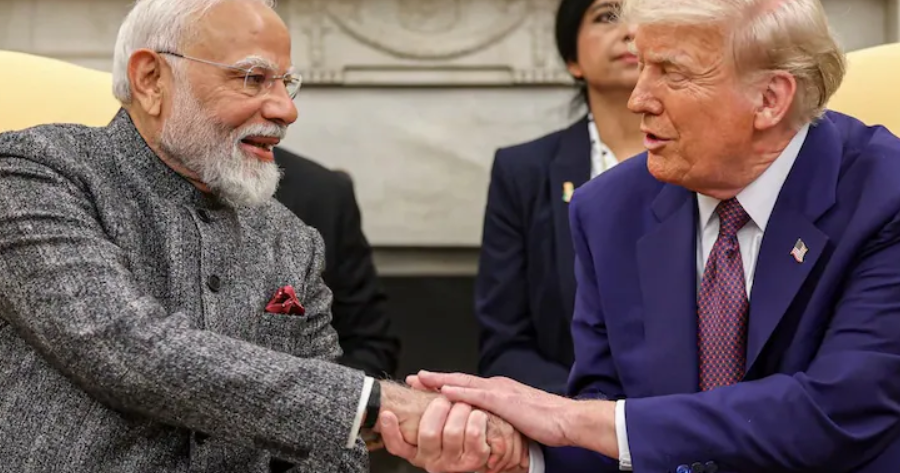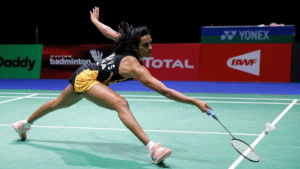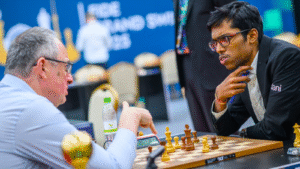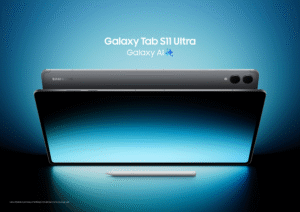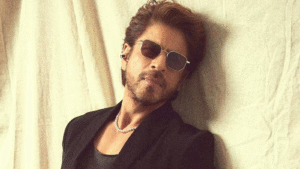Big PMO Meet Tomorrow as Trump’s 50% Tariffs Set to Come Into Force: Sources
High-Level Huddle in New Delhi
The Prime Minister’s Office (PMO) has called for an urgent high-level meeting on Tuesday to discuss India’s response to U.S. President Donald Trump’s latest trade move — a steep 50% tariff on select imports, which will come into effect this week. Sources indicate that senior officials from the ministries of commerce, finance, external affairs, and industry have been directed to attend the review session.
The meeting comes at a critical juncture as India weighs both the economic and diplomatic consequences of Washington’s unilateral tariff escalation, which could significantly impact India’s exports.
Tariffs Spark Global Alarm
Trump’s decision to impose a 50% duty has sent ripples across global markets. The new tariff is seen as part of his wider “America First” agenda and an attempt to curb trade deficits. While official details of the tariff categories are still emerging, preliminary reports suggest that a range of sectors, including steel, aluminum, textiles, and IT services, could be hit.
For India, the United States is a key export destination. Any significant duty increase on Indian goods could affect billions of dollars’ worth of trade annually. “This is not just about tariffs—it’s about market access, competitiveness, and the future of bilateral trade ties,” said a senior trade analyst.
India’s Trade Stakes
India’s exports to the U.S. were valued at nearly $80 billion last year, making it one of the country’s top trading partners. Key sectors likely to feel the pinch include:
- Textiles & Apparel: India is a major supplier of readymade garments to U.S. markets.
- Pharmaceuticals: Indian drugmakers depend heavily on U.S. buyers.
- Steel & Aluminum: Past tariff hikes under Trump already created friction in these sectors.
- IT & Services: While services aren’t directly covered under goods tariffs, the move could pave the way for wider restrictions.
Industry leaders have already expressed concern that Trump’s 50% tariff could slash competitiveness, lead to job losses in export-dependent sectors, and disrupt supply chains.
Government’s Likely Response
Officials privy to the agenda of the PMO meeting said discussions will center on three key options:
- Diplomatic Outreach: Engaging Washington to negotiate a rollback or carve-outs for Indian products.
- Reciprocal Measures: Considering retaliatory tariffs on U.S. imports to protect domestic industries.
- Diversification: Accelerating efforts to reduce reliance on the U.S. market by boosting trade with Europe, Southeast Asia, and Africa.
A senior official noted, “India has to be pragmatic. While retaliation is an option, we must ensure it does not escalate into a full-blown trade war.”
Political Undertones
Beyond economics, the move carries significant political weight. With general elections approaching, the government is keen to avoid any perception of weakness in handling global trade challenges. Opposition parties have already started criticizing the government’s preparedness, accusing it of being slow to anticipate Trump’s aggressive tariff agenda.
Global Reactions and Markets
The U.S. decision has also rattled global markets. Asian indices closed lower on Monday, while the Indian rupee came under mild pressure against the dollar. European Union leaders called the tariff “protectionist and destabilizing,” while China signaled it would review its own export exposure.
Multilateral trade bodies, including the World Trade Organization (WTO), are watching the development closely. Experts believe Trump’s decision could trigger a new wave of disputes at the WTO, where India has previously challenged U.S. tariff actions.
What’s Next?
The PMO’s meeting on Tuesday is expected to outline India’s short-term response and long-term strategy. While officials are tight-lipped on the likely outcome, trade experts suggest the government may pursue a mix of diplomacy and diversification rather than outright retaliation.
“India must walk a fine line. While we cannot afford to take a soft stance, escalation will hurt our economy as much as theirs,” said a former commerce secretary.
As Trump’s 50% tariffs come into force, India faces one of its toughest trade tests in recent years — a balancing act between protecting domestic interests and preserving critical ties with Washington.


